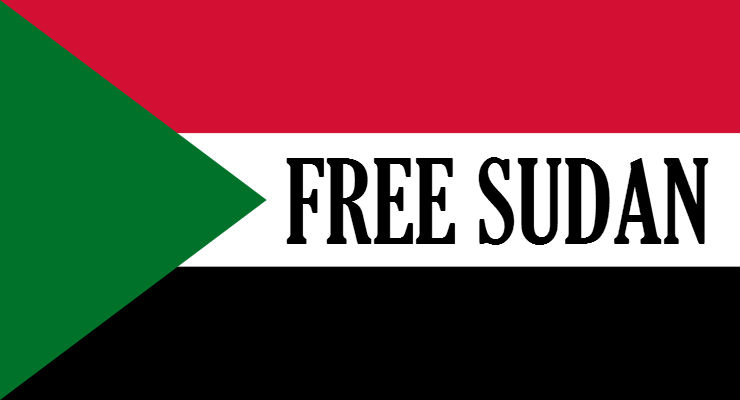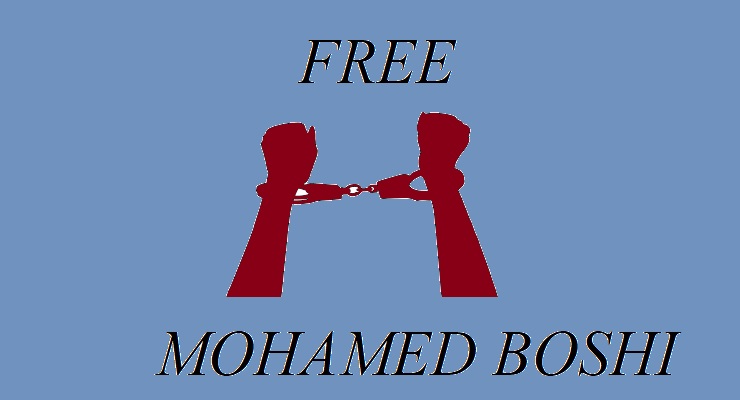
(Nairobi) – Sudanese authorities have confirmed that they are holding a vocal critic of the government who was forcibly disappeared in Egypt in October, 2018, Human Rights Watch said today. Sudan’s national security authorities refused to provide information for weeks about the detention of the activist, Mohamed Boshi, but announced charges against him on November 8.
“Egyptian and Sudanese authorities cooperated in forcibly disappearing and returning an asylum-seeker to Sudan, in clear violation of international norms and the prohibitions on enforced disappearances, persecution, and torture,” said Jehanne Henry, associate Africa director at Human Rights Watch. “Having unlawfully detained him for weeks, Sudan has now charged him with serious crimes that carry the death penalty. They should drop the charges and release him immediately.”
Boshi, 35, was reported missing in Cairo on October 10, after five armed men believed to be Egyptian security agents arrived at his apartment building and searched his apartment, witnesses in Cairo told Human Rights Watch. News of Boshi’s disappearance surfaced on social media the next day, amid activists’ fears that Egyptian authorities had returned him to Sudan. Boshi’s family members in Sudan told Human Rights Watch that Sudanese security officials contacted them on October 13 to say he was in their custody but would not say where.
On November 8, Sudan’s national security agency announced criminal charges against Boshi for espionage and crimes against the state, which carry the death penalty. Sudanese officials have in recent years brought similar charges against other rights activists. Boshi remains in national security custody, and family members and lawyers have not been permitted to visit him.
Boshi, formerly a member of the opposition Baath Party, had been detained previously for his political activism. In 2011, security agents detained him in Khartoum for several weeks after he made a speech criticizing Nafie Ali Nafie- a presidential adviser and party hardliner. In late 2013, they detained him for over a month during a government crackdown on protests. He was beaten and held in harsh conditions both times.
In 2017 he moved to Cairo, where, family members said, he sought protection from the United Nations refugee agency, UNHCR, and continued to criticize the Sudanese government through Facebook live broadcasts and other social media platforms. The reasons for his arrest and forced return to Sudan are unknown. Under the 1951 Refugee Convention and the Convention against Torture, the Egyptian government may not return refugees to a place where their lives or freedom would be at risk or where they risk being tortured.
Sudan’s draconian National Intelligence and Security Service (NISS) is well-known for arbitrary detentions and abuse of detainees. Under the national security laws, officials have wide powers to arrest and detain people for up to four-and-a-half months without charge. Human Rights Watch and others have for years documented torture and abuse of detainees by NISS and urged reform of the agency.
Relations between Egypt and Sudan have warmed in recent months. In July, Egypt refused entry to a prominent opposition leader, Sadiq al-Mahdi, and Sudan seems to have ordered several Egyptian Muslim Brotherhood dissidents to leave the country in 2017. Earlier in 2018, an independent news outlet obtained a “leaked” list from the Sudanese embassy in Cairo of 48 names of activists reportedly wanted by the Sudanese government. More than half of them received calls from Egyptian security and were warned or threatened with deportation.
Saudi Arabia has also forcibly returned at least four Sudanese activists and social media critics to Sudan in the last two years. Upon their arrival, Sudan’s national security agency detained the men for months and beat and abused them. One of the four, Husham Ali, remains in detention.
“Diplomatic rapprochement should not come at the cost of human rights,” Henry said. “Silencing critics in this way will not solve Sudan’s problems; Sudan needs to uphold its international obligations and release Boshi immediately.”

Leave a Reply